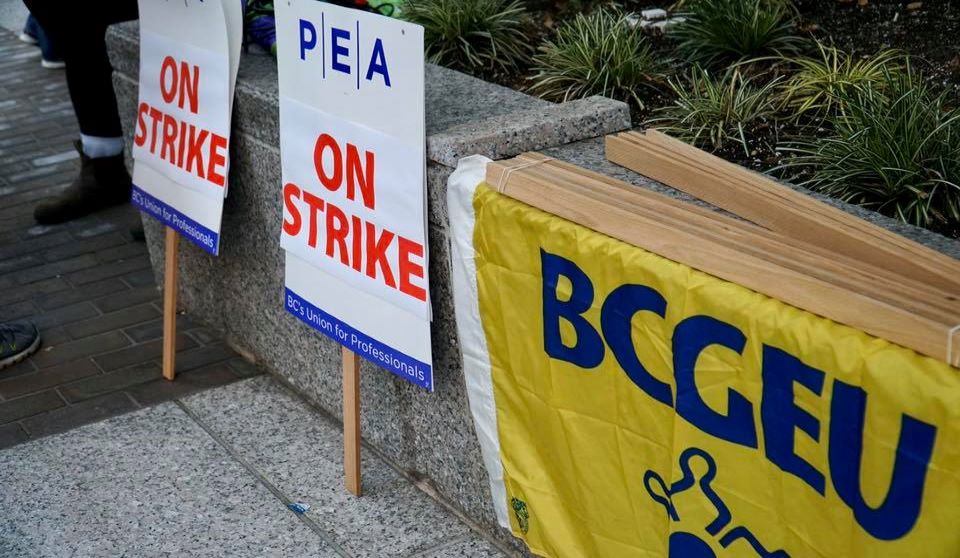
Legal aid staff lawyers earn 30 per cent less than their Crown counsel counterparts

Legal aid staff lawyers striking against the B.C. government have announced that they will only perform the minimum work required by their contracts.
According to a media release, 26 Legal Services Society staff lawyers, represented by the Professional Employees Association, have commenced work-to-rule job action, effective Nov. 22, as a part of their incremental strike action, which they say will last until the wage inequality is finally addressed.
Despite the ongoing strike, PEA said that all legal aid centres would remain open.
Following the expiry of their collective agreement on Sept. 30, they staged a walkout and picketing of the LSS office in Vancouver on Nov. 1, with the support of the BC Federation of Labour and the British Columbia Government and Service Employees’ Union.
As of their Nov. 22 update, the LSS staff lawyers were refusing to perform administrative duties, such as responding to emails and attending meetings, which are beyond the scope of their essential client and case work. In doing this, the lawyers aim to remedy the “historical underfunding of legal aid.”
“We do the same work as the contracted legal aid lawyers, yet we’ve been offered less,” said Harshada Deshpande, a staff lawyer at the Parents Legal Centre in Vancouver, in a statement.
PEA said members currently earn lower wages compared with Crown counsel, who earn 30 per cent more, as well as compared with legal aid contract lawyers, who enjoyed a 25-per-cent tariff increase this year, and who will experience additional tariff increases in the course of the next two fiscal years.
PEA expressed worry that this wage inequality would negatively impact the recruitment and retention of qualified staff lawyers. “This differential will drive good people out of the legal aid centres and convince the next generation it’s better to become a contract lawyer in private practice than it is to work as a legal aid staff lawyer,” said the release.
However, the statement said that legal aid staff lawyers remain optimistic that the government will listen to their demands and take steps similar to what it has done for the Canadian Union of Public Employees in relation to the recently resolved Saanich school strike.
As the first point of contact in B.C. legal aid centres, legal aid staff lawyers perform a crucial role that they hope the government will not neglect to adequately compensate, the union said. LSS lawyers primarily provide legal services to low-income people embroiled in criminal, family, and immigration proceedings across B.C.
As said in a quote in the release, “We go to court and we also advocate for clients outside of court processes. We serve on the front lines of justice for those who need it most.”